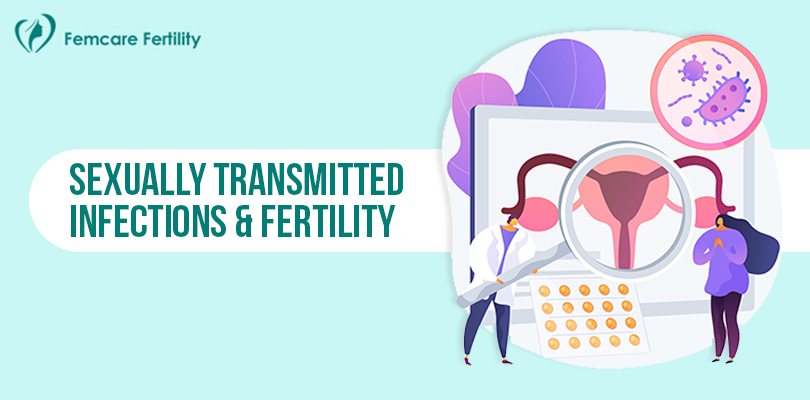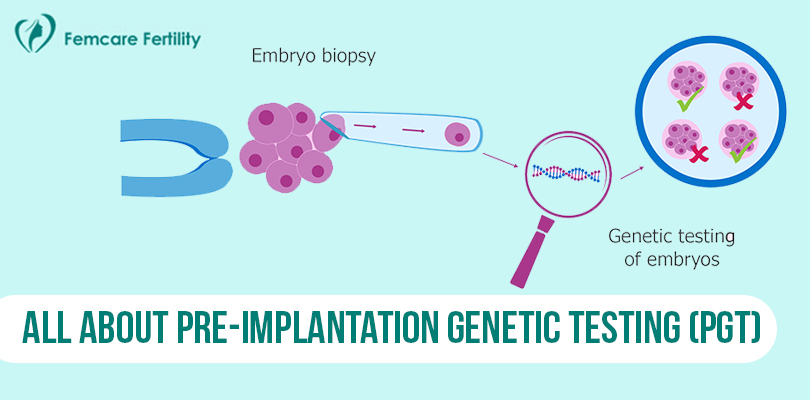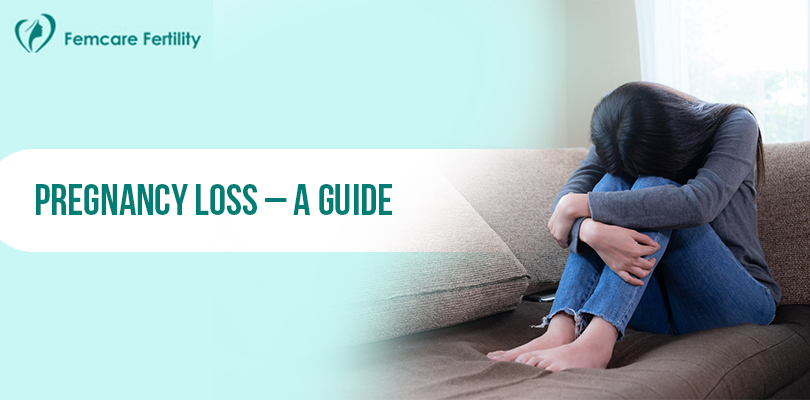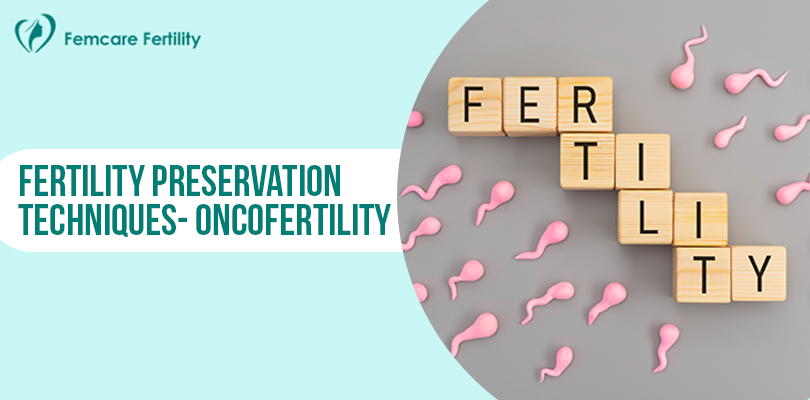Repeated or recurrent pregnancy loss (RPL) is a term used when women experience two or more miscarriages consecutively, usually before 20 weeks of pregnancy.
It is not a common phenomenon and only about 1-2% pregnant females face recurrent miscarriages. However, it can take huge toll on the lady’s mental health and the couple’s relationship. There is an increased risk of miscarriages in women who have had repeated abortions. Having said this, it does not mean that the couple can never have a baby. A couple has about 60-80% of chance to have a full-term healthy baby even after experiencing 2 or more miscarriages.
What leads to RPL?
In about 50% cases of RPL, the cause is unknown. However most common of the identified causes are:
Chromosomal
Majority early recurrent pregnancy losses (70-80%) can have association with some kind of chromosomal aberration in the embryo. This could be in the developing embryo itself during division or present in the sperm/ egg or inherited in an unbalanced form from either parent. Nature does not allow such pregnancy to thrive and grow further. Thus the normal development is impaired leading to a miscarriage.
Common chromosomal abnormalities
- Aneuploidies – Changes in the normal number of chromosomes which is 46 involving presence of extra chromosome or absence of a chromosome. This leads to an imbalance in the total number.
- Structural chromosomal abnormalities – Sometimes a couple or either partner can be carriers of balanced chromosomal structural rearrangements which do not affect them. However, if passed on to the baby in an unbalanced form, it can cause the pregnancy to be non-viable. Seen in about 4-8% cases. Most common rearrangement is an unbalanced translocation.
Risk for chromosomal abnormalities in the baby and therefore risk of miscarriage increases with the
lady’s age as the quality of the eggs decreases due to improper division of the chromosomes.
Chromosomal analysis by karyotyping of the miscarried pregnancy tissue (POC) is suggested after 2 or more losses followed by couple’s testing in case something comes up on POC analysis. If not possible, direct karyotype of the couple can be done to look for balanced chromosomal rearrangements.
Hormonal problems:
Identified in almost 10% repeated miscarriage cases
- Hypo or hyperthyroidism – Low or high amounts of thyroid hormone is known to affect fertility and is also associated with miscarriages as it can affect the normal environment of the womb.
- Uncontrolled diabetes – It is a risk factor for PCOS and associated hormonal problems, which in turn increase the risk of miscarriage and birth defects in the baby.
- Progesterone deficiency – Luteal phase defect (LPD). Sustenance of pregnancy requires adequate amount of progesterone hormone and deficiency can lead to miscarriages. LPD may also be associated with other hormonal imbalance.
- Increased prolactin interferes with proper development of the uterine lining to hold the pregnancy.
Autoimmune conditions
These are medical conditions in the mother-to-be where in her own antibodies attack normal tissues in the body.
- Anti-phospholipid antibodies (APLA) – These antibodies produced in the woman leads to impaired blood flow to the baby and abnormal blood clotting which leads to placental abnormalities, deficiency and abortion. About 5-15% cases of RPL can be attributed to APLA.
- Anti-thyroid antibodies are also thought to increase rate of early miscarriages even when the thyroid function is normal.
Lifestyle:
Certain lifestyle factors are known risk factors for RPL like malnutrition, obesity, alcohol, smoking, drugs, high blood pressure.
Clotting disorders:
Abnormal blood clotting conditions (thrombophilia – Factor V and II Leiden, MTHFR gene mutations) were initially thought to the associated with RPL, however its evidence is limited and many specialists now do not feel they could really be a cause for recurrent miscarriages.
Though the term RPL is most commonly used for miscarriages under 20 weeks, there are certain conditions when there can be repeated miscarriages even later in pregnancy:
Structural abnormalities of the uterus:
A divided uterus (septate uterus), abnormal uterus shape, fibroids which can interfere with pregnancy, scarring in the uterine wall due to some procedure, D&C or infection. All of these interfere with the baby’s growth in the 2nd or 3rd trimester leading to pregnancy loss.
Cervical insufficiency:
When the cervix, which is the doorway to the uterus, is weak or short, it may cause it to open much before completion of pregnancy. There may be sudden leaking of the fluid or direct expulsion of the fetus.
Infections:
Certain bacterial or viral infections affect the placental and endometrial health (chronic endometritis) which can be associated with repeated miscarriages if untreated. Some infections can also cause premature delivery or disease to the baby.
How to manage RPL ?
Common treatment strategies include:
- Pre-implantation genetic diagnosis (PGD) – Since chromosomal causes are the most common cause of RPL, IVF followed by PGD can be considered to test if the embryo is chromosomally healthy before transferring. As only healthy embryos will be transferred, the chance of a healthy pregnancy and baby increases tremendously
- Anti-coagulation therapy using heparin and aspirin in cases of APLA or clotting conditions. These are blood thinners which can help to restore blood supply to the baby and facilitate its growth thereby reducing chances of abortion
- Controlling hormonal imbalance with appropriate medication
- Surgery in cases of uterine abnormalities to remove the septum, fibroids or scarring for the pregnancy to go to term
- Adding a stitch to the cervix can help in cases of short or incompetent cervix. Progesterone medications also help with short cervix to keep it from prematurely opening
- Use of specific antibiotics and medication to clear out any detected infection before conceiving
- Lifestyle changes – Giving up smoking, reducing alcohol and caffeine, maintaining ideal weight, balanced diet and supplementation go a long way in reducing miscarriages.
Having to go through multiple pregnancy losses is a devastating feeling making couples feel worthless and guilty. However bleak the situation may feel, there is light at the end of the tunnel as majority of couples do have healthy babies even after multiple miscarriages. Our best infertility specialist in Pune works with you to find the root cause and subsequent treatment for the pregnancy losses to help you achieve parenthood. Pay a visit to us at the best fertility centre in Pune to revive your pregnancy journey.




